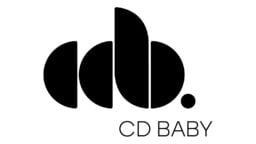As CD Baby sharpens its focus on streaming this year by ending its vinyl and CD distribution service, the company is introducing a new feature to support independent songwriters in royalty collection and sync opportunities.
The independent music distributor under Downtown Music Holdings has launched CDB Boost, the latest addition to CD Baby’s suite of artist-centric tools, offering a new approach to royalty management for a one-time fee of $39.99 per single or album.
CDB Boost’s tools include features such as mechanical royalty collection facilitated by the Mechanical Licensing Collective (MLC) and non-interactive digital performance royalty collections through SoundExchange.
The MLC, established under the Music Modernization Act, recently revealed that it has paid out over $1.5 billion to songwriters since its inception.
Meanwhile, SoundExchange, which collects and distributes digital performance royalties on behalf of more than 650,000 creators, had earlier said that it had paid out $498 million in digital royalties to creators in the first half of 2023.
In addition to royalty collections via The MLC and SoundExchange, CDB Boost integrates songwriters into CD Baby’s sync licensing program, broadening their exposure to potential licensing opportunities.
“We are immensely excited to launch CDB Boost as a game-changing resource that will help independent songwriters collect two additional sets of royalties they have earned.”
Faryal Khan-Thompson, CD BabY
CD Baby claims CDB Boost simplifies the handling of these processes by automatically registering users’ musical works with the MLC and SoundExchange, ensuring the collection of digital audio mechanical royalties from eligible streaming and download services in the US.
“We are immensely excited to launch CDB Boost as a game-changing resource that will help independent songwriters collect two additional sets of royalties they have earned,” said Faryal Khan-Thompson, SVP of Marketing & Community Engagement at CD Baby.
“Our synergistic collaboration with the Mechanical Licensing Collective opens up new opportunities for us to fulfill our mission of serving independent creators by ensuring that songwriters who use our sound recording distribution services also receive their rightful digital audio mechanical royalties, while our inclusion of sync and SoundExchange further strengthens our commitment to fostering musicians’ success.”
“Boost combines innovation, convenience and unwavering dedication to bring change and elevate the independent songwriter community.”
“Through the joint efforts of The MLC and CD Baby, Boost users will be able to experience increased accessibility to their digital audio mechanical royalties.”
Dae Bogan, The MLC
Dae Bogan, Head of Third-Party Partnerships at The MLC, added: “We are proud of the ongoing advancement of our collaboration with CD Baby.”
“Through the joint efforts of The MLC and CD Baby, Boost users will be able to experience increased accessibility to their digital audio mechanical royalties.”
Established in 1998 by Derek Sivers in New York, CD Baby emerged as one of the earliest online platforms offering CD sales for independent artists. The company would expand into digital music distribution, becoming an early partner of iTunes, and it diversified its physical offerings with cassette tapes and vinyl distributed to traditional retailers.
In 2019, CD Baby became part of Downtown Music Holdings, a New York-based independent rights management and music services firm. This deal was made possible when Downtown Music acquired the AVL Digital Group and its portfolio of businesses valued at about $200 million.
Termed an “anti-label” by Tracy Maddux, Chief Commercial Officer at Downtown Music, CD Baby has distributed over $1 billion to artists since its inception in 1998. In 2020 alone, CD Baby disbursed $125.4 million from digital platforms to artists, equivalent to $2.4 million per week.
Music Business Worldwide





